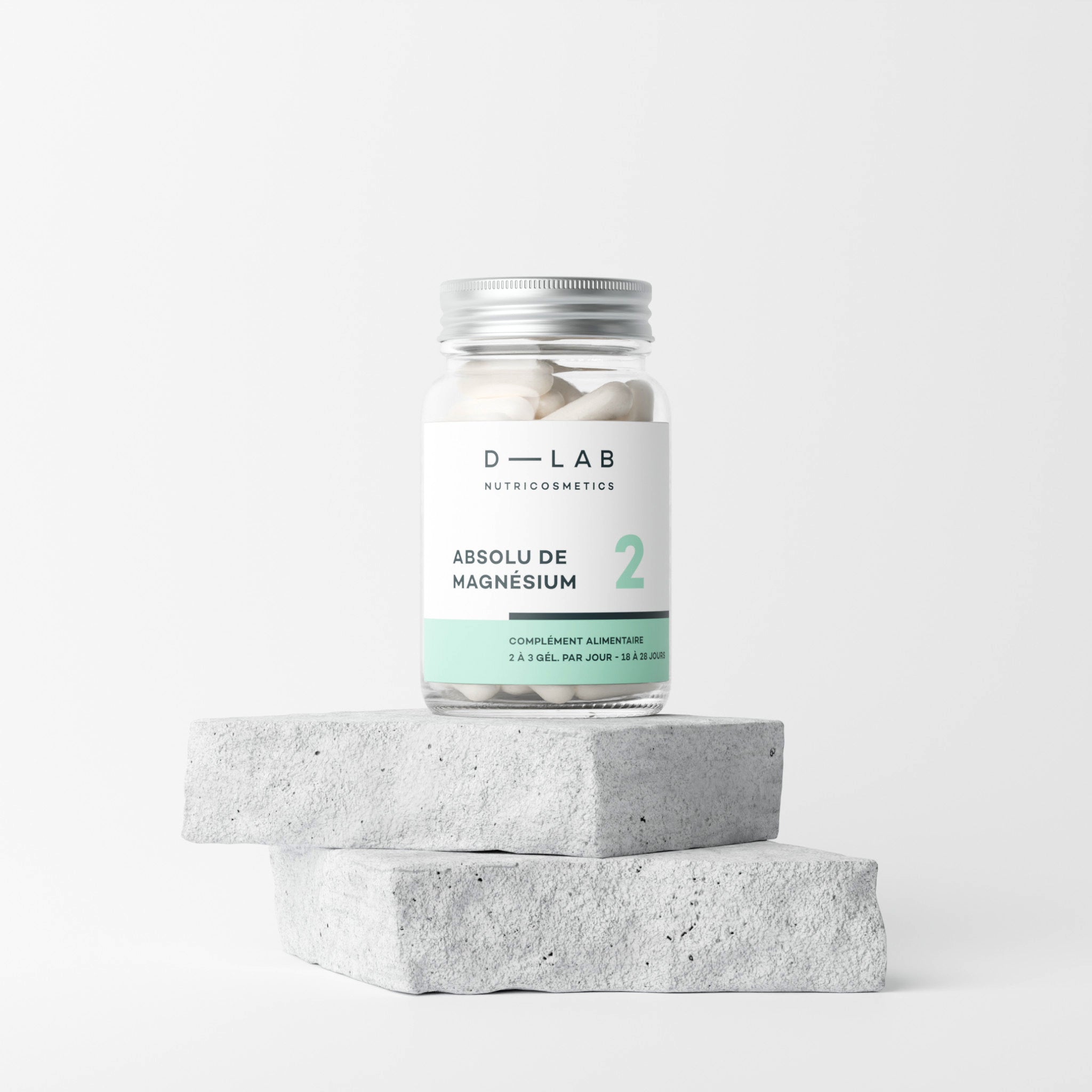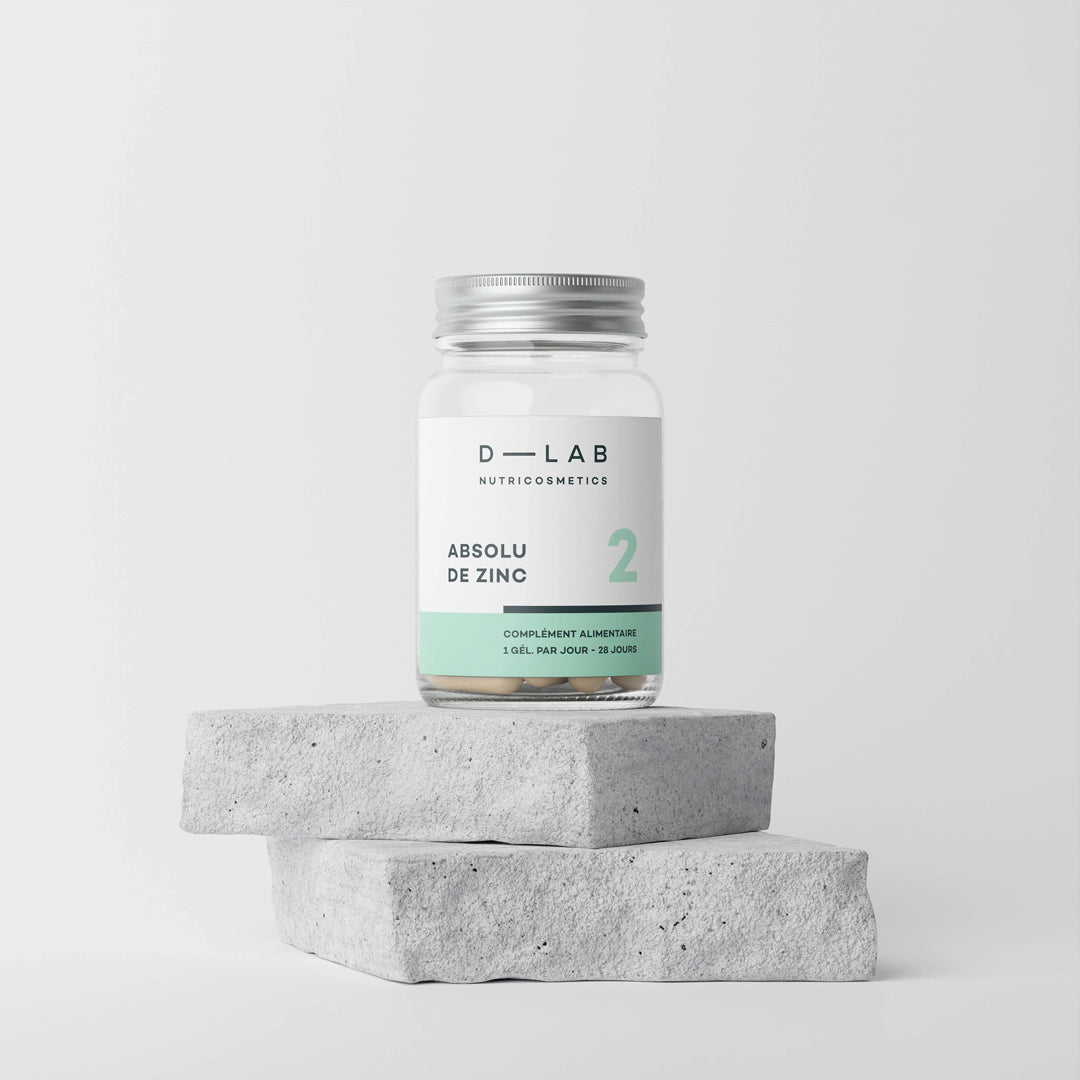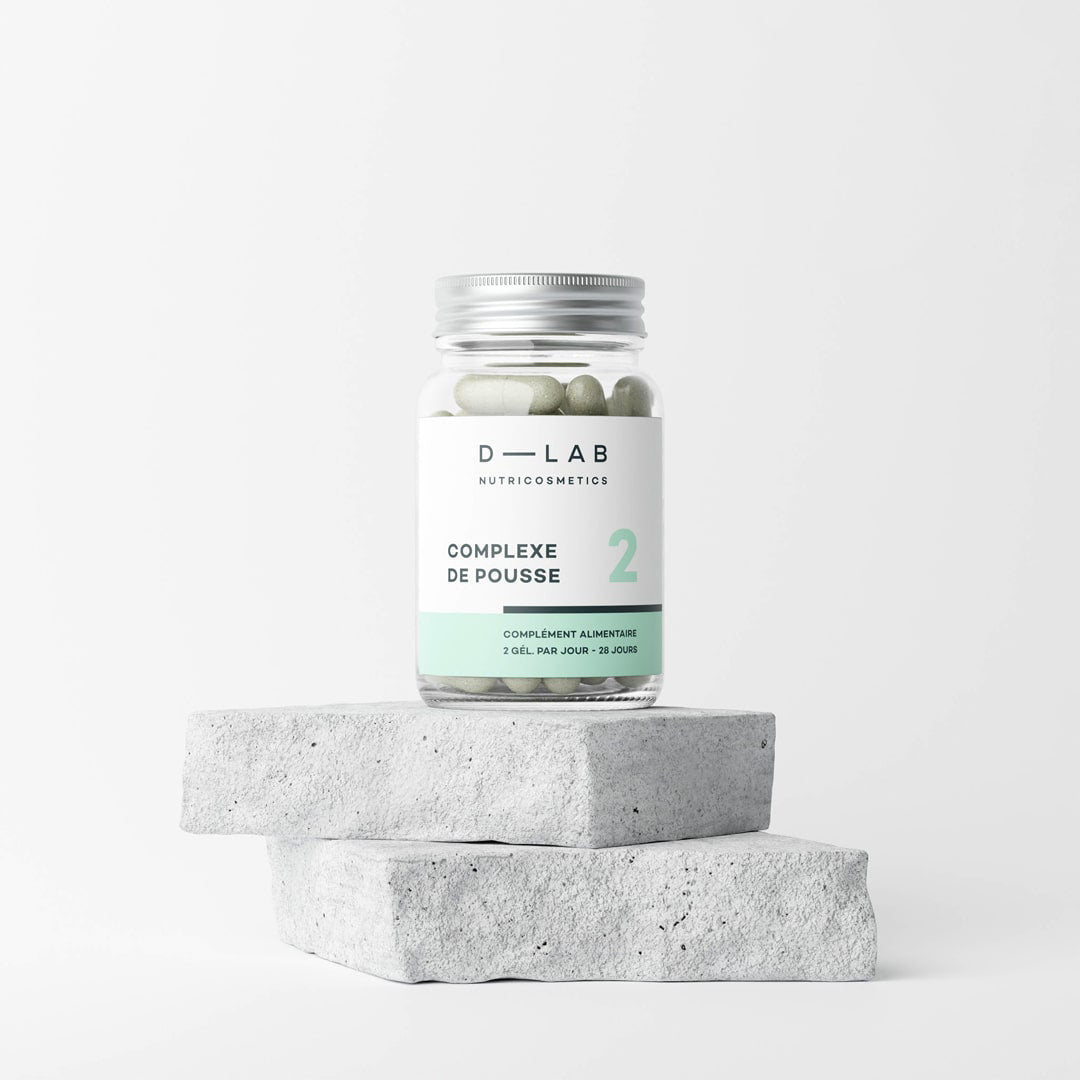
Collagen supplements are clinically proven to improve skin quality, firmness and elasticity. This protein is known to help skin age well by reducing wrinkles and maintaining its radiance.
This article provides all the information you need to start a collagen treatment with confidence, including the best way to take collagen, the recommended dose of marine collagen per day, when to take collagen and at at what age to take collagen,and especially in what form and how to take collagen.
Summary
I. Understanding Collagen
1. What is collagen?
Collagen is an essential protein found in the body, which plays a crucial role in the structure and health of skin, bones, muscles, tendons and ligaments. It is responsible for the firmness and elasticity of the skin.
Collagen has a particular structure which is characterized by a specific sequence of amino acids, including glycine, proline and hydroxyproline. This unique structure is in the form of a triple helix, also known as a triple alpha helix, where three polypeptide chains intertwine tightly.
This triple helix structure gives collagen its stability and strength, which are essential for the strength of connective tissues.
To read: What is collagen?
2. The roles of collagen in the body
Collagen is an essential protein in our body, playing a crucial role in the structure of skin, hair, nails, tendons and cartilage. Its production declines with age, which can lead to signs of aging and health problems.
Collagen supplements have become popular to help offset this decline and improve skin and joint health.
3. Understanding collagen absorption
Before determining when to take collagenorwhat time of day to take collagen, it is important to understand how our body absorbs this protein.
Collagen is usually available in powder, capsule, or liquid form.
When we consume collagen supplements, it is important to understand how this protein is absorbed by our body to reap the full benefits.
When collagen is ingested in the form of dietary supplements, it first goes through the digestion process.
Collagen proteins are broken down into smaller peptides and amino acids by digestive enzymes found in the stomach and small intestine.
This enzymatic hydrolysis is a crucial step, because entire collagen molecules are too large to be absorbed directly through the intestinal wall.
Once broken down into smaller peptides and amino acids, these fragments are taken up by cells in the small intestine through active and passive transport mechanisms.
These collagen fragments then enter the bloodstream and are distributed throughout the body.
The absorbed collagen peptides can then exert several beneficial effects.
They stimulate connective tissue cells, called fibroblasts, to produce more endogenous collagen. Additionally, these peptides may have anti-inflammatory and antioxidant effects, which contribute to overall connective tissue health.
Scientific studies have shown that regular consumption ofhydrolyzed collagen can improve skin elasticity, strong>reduce wrinkles and joint pain, and strengthen hair and nails.
It is important to note that the effects may vary depending on the individual, the quality of the collagen supplement used, and the duration of consumption.
In summary, the process of collagen absorption involves its breakdown into peptides and amino acids in the digestive system, followed by their intestinal absorption and distribution throughout the body. These collagen fragments can then contribute to the synthesis of new collagen and overall connective tissue health.
4. The decrease in collagen production with age
Indeed, from the age of 25, the production of collagen decreases, which leads to the appearance of signs of aging such as wrinkles, fine lines, sagging skin, loss volume and elasticity.
These changes can also manifest themselves in the body through joint and tendon problems, poor assimilation and digestive disorders.
From the age of 40, the body produces approximately 1% less collagen each year. This means the body has less collagen to support the skin, joints and connective tissues.
By the age of 50 , we would have used up half of our collagen capital.

II. When to take collagen?
1. Depending on age: collagen production decreases over time
When to take collagen depends on age, as natural collagen production declines over time. At what age should you take collagen?
Indeed, from the age of 25, collagen production decreases, which leads to the appearance of signs of aging such as wrinkles, fine lines, sagging skin, loss volume and elasticity.
These changes can also manifest themselves in the body through joint and tendon problems, poor assimilation and digestive disorders.
From the age of 40, the body produces approximately 1% less collagen each year. This means the body has less collagen to support the skin, joints and connective tissues.
At the age of 50, we would have exhausted half of our collagen capital.
2. Depending on needs: skin, joints, hair and nails...
Some individuals feel the need to take collagen due to specific issues such as joint pain or skin problems due to decreased collagen in their body.
We can then opt for marine collagen supplementation.
Here are some situations in which a marine collagen treatment can be beneficial:
To improve the beauty of the skin in cases of skin dryness, dehydration, to restore the radiance and volume of the skin, to regain skin firmness, reduce the appearance of wrinkles and fine lines, prevent the first wrinkles, regain a luminous and uniform complexion.
To support sports practice or bodybuilding by promoting the development of lean muscle mass and facilitating recovery after exercise.
Also read: How collagen can support joints and muscles
To relieve joint pain and improve joint flexibility in case of discomfort.
Read also: collagen and aging of joints
To enhance the beauty of hair and nails by bringing shine and vitality to the hair, particularly in combination with complementary active ingredients for the beauty of the hair.
3. When should you consume it?
It is possible to start collagen supplementation from the age of 25 as a preventative measure. By improving skin quality, collagen supplementation can delay the appearance of the first signs of aging.
In certain cases, such as smoking, a stressful lifestyle, repeated UV exposure without sun protection or very intense physical activity, it may be wise to start collagen supplementation from the age of 25 to avoid premature degradation. collagen proteins in the body.

III. How to consume it?
1. What dose should I take each day?
Recommended doses of collagen generally vary from 3 to 10 grams depending on individual needs.
To support skin health, a dose of 2g may be sufficient, while for joint problems it is generally recommended to take between 4 and 10g.
For specific needs such as intense healing, higher doses may be necessary.
However, the quality of collagen is essential. The dose does not matter, as long as the collagen is well hydrolyzed, of good quality and the results are clinically proven.
It is better to opt for a small dose of quality rather than opting for a high dose of poor quality and poorly assimilable collagen.
2. At what time of day should you take it?
There is no specific recommended time to take collagen, it depends on individual preferences and lifestyle.
Some prefer to take it in the morning, while others add it to their evening routine.
In order to obtain better results, it is important to be regular in taking food supplements.
It is therefore ideal to find a way to easily integrate it into your daily routine, for example by having it for breakfast, adding it to your morning coffee, mixing it with a herbal tea in the evening, or by consuming it in a post-workout drink if you are sporty.
It will also depend on the form of collagen you consume.
3. Should it be taken in the morning or in the evening?
Some people choose to take collagen in the morning on an empty stomach for better absorption, while others prefer it before or after exercise. Some experts also suggest taking collagen before bed, to promote cell regeneration during sleep.
a. In the morning on an empty stomach
Taking collagen in the morning on an empty stomach can promote better absorption of collagen peptides because the stomach is empty and digestive enzymes can work more effectively.
b. Before or after exercise
Taking collagen before or after exercise can help support muscle recovery and promote joint health. Collagen peptides can be quickly absorbed and used by the body to repair connective tissues.
c. Before bedtime
Taking collagen before bed can promote cell regeneration during sleep. The body repairs and regenerates itself overnight, and collagen peptides can support this process.
4. Impact of fasting on collagen absorption
Intermittent fasting, an increasingly popular practice, involves alternating between periods of fasting and eating.
This method can have various effects on the body, including on the absorption of nutrients.
When it comes to taking collagen, the timing of consumption during a fasting cycle can influence its effectiveness.
- Improved Absorption
During a fasting period, the stomach and intestines are empty, which can make supplements easier to absorb when consumed at the end of the fast. When you take collagen on an empty stomach, there is no competition with other nutrients for absorption. This may allowfaster and more efficient assimilation of collagen peptidesand amino acids in the digestive system.
- Maximizing Regenerative Benefits
Fasting has been linked to various health benefits, including improved cell regeneration and reduction of inflammation. Taking collagen after a period of fasting could enhance these effects. Collagen provides the amino acids needed for tissue repair, and fasting can potentially increase the sensitivity of cells to these nutrients, thereby optimizing the regeneration process.
- Timing and Consumption
For those who practice intermittent fasting, consuming collagen right after the fasting period can be particularly beneficial. For example, if you follow a 16/8 fasting pattern (16 hours of fasting followed by 8 hours of food intake), taking collagen at the end of the 16 hours can maximize its absorption and effects .
- Practical Considerations
It's important to note that while fasting may improve collagen absorption for some people, everyone responds differently to fasting and supplements. It is advisable to start slowly and monitor how your body reacts. If you have specific health concerns or pre-existing medical conditions, consult a healthcare professional before incorporating collagen and fasting into your routine.
Fasting can potentially improve collagen absorption by reducing competition with other nutrients and increasing cell sensitivity to essential amino acids. Taking collagen after a period of fasting can therefore maximize its regenerative and tissue repair benefits. However, it is crucial to listen to your body and adapt collagen consumption based on your individual needs and reactions.
5. How long does a collagen treatment last?
The duration of a collagen treatment may vary depending on the desired results and specific needs. Some people opt for a course of a few months, while others prefer long-term use.
Clinical studies generally suggest a 2-6 month program to achieve long-lasting benefits from collagen.
A duration of three months can already allow you to observe a significant improvement in the elasticity of the skin and its beauty.
At D-LAB, you can consume collagen cures all year round according to your needs.
IV. The different forms available
1. Powder
The powder form of collagen allows for high bioavailability, optimal digestibility and absorption, and can be used in a variety of ways.
Marine collagen powder is primarily composed of 100% hydrolyzed collagen peptides, like that offered by D-LAB.
Among all sources of collagen, powdered marine collagen is considered one of the most easily assimilated by the body, because its structure is similar to that of human collagen.
How to take collagen powder?
Collagen powder is a convenient and versatile form of supplementation. Here are some ideas to easily incorporate it into your daily life:
Mixed into drinks: You can mix the collagen powder into various drinks like water, juice, tea or coffee. Make sure to mix well to avoid lumps.
In smoothies or shakes: Add a teaspoon or tablespoon of collagen powder to your usual smoothies or protein shakes. This can be especially convenient for people following a protein diet or leading an active lifestyle.
In culinary recipes: Integrate collagen powder into your favorite recipes, such as soups, sauces, desserts or even homemade energy balls. Choose dishes that will not be cooked at too high temperatures, as excessive heat can break down collagen.
Sprinkled on food: You can also sprinkle collagen powder on foods such as yogurt, cereal, salads or fruit. This is a great way to discreetly incorporate it into your daily diet.
D-LAB collagen powders allow you to meet your needs for collagen but also for different active ingredients depending on your current problem: hair, slimming, joints, digestion or even solar.
2. Tablets
Some people find collagen tablets easier to use than powders. They should be added to your daily routine, morning or evening, depending on your pace.
This unique complex contains 94% marine collagen combined with 6% elastin fibers in proportions equal to those of the essential components of our skin. To guarantee maximum bioavailability, D-LAB has selected patented and hydrolyzed collagen, making it perfectly assimilated by the body.
This balance helps stimulate the biosynthesis of the main constituents of the dermis to tone sagging areas and effectively fight against the signs of aging.
By combining the two main constituents of our dermis, Collagen Absolute has a synergistic anti-wrinkle action proven by clinical study: elastin fibers provide suppleness to the skin while collagen stimulates the production of new collagen in the body to protect and hydrate the epidermis as a whole.
3. Foods rich in collagen
Certain foods like bone broth, fish, eggs and goji berries contain nutrients that promote collagen production.
Some traditional dishes cooked for a long time are naturally rich in collagen, such as bone broth, stew, fish and shellfish broths, or even marrow bones and gelatin.
For vegetarians or vegans, it is preferable to choose foods that stimulate the synthesis of collagen and help its regeneration, such as those rich in vitamin C (sprouted seeds, peppers, kiwi, berries and small red fruits, citrus fruits, parsley). . Spirulina is also known to stimulate collagen synthesis.
4. Collagen-based creams and treatments
To complement and reinforce the action of collagen food supplements, you can incorporate treatments containing collagen into your beauty routine (concentrated collagen serums, collagen creams, etc.).
In active cosmetic form, collagen acts as a protective shield for the skin, maintaining its hydration and preserving it from external aggressions.
It also reinforces skin hydration, gives a fresh and plump complexion, and improves the texture and elasticity of the skin.
Some products also stimulate the natural production of collagen, thus promoting healthy and youthful skin, such as vitamin C.
Discover the range
Is it good to consume marine collagen every day?
It is generally safe and beneficial to consume marine collagen every day. Regular consumption of collagen can help maintain healthy skin, joints, hair and nails. However, it is important to follow dosage recommendations and consult a healthcare professional if necessary.
What is the best way to use it?
The best way to use collagen depends on individual preferences and specific needs. Collagen powder can be mixed into drinks, added to smoothies, or incorporated into culinary recipes. Collagen tablets are also a convenient option for daily intake.
When is the best time to consume it?
The best time to consume collagen depends on personal preferences and individual goals. Some prefer to take it in the morning on an empty stomach, while others take it before or after exercise or before bed. The important thing is to consume it regularly to maximize its benefits.



























